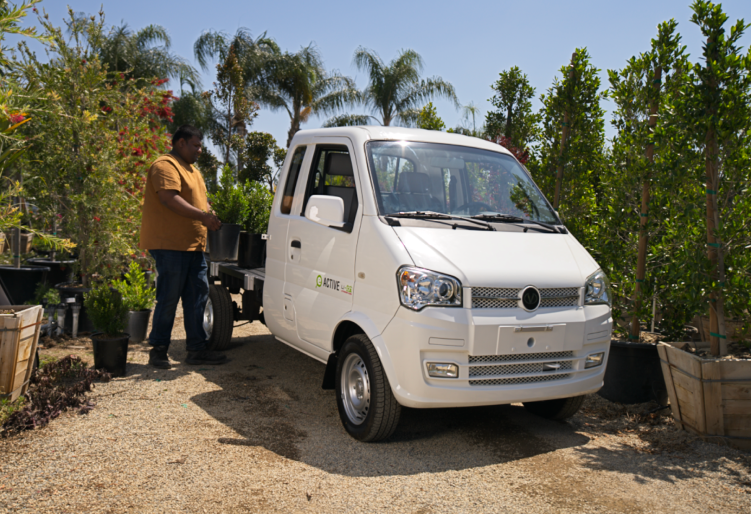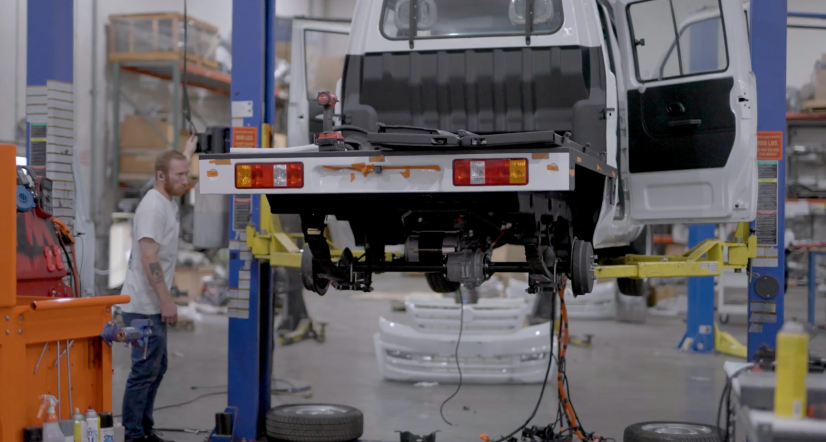Electric vs. Gas Utility Vehicles: Which Is Better for Your Fleet?

Utility vehicles are highly versatile, multi-purpose vehicles designed to perform a wide range of tasks in both professional and recreational settings. Commonly used for transportation, hauling, and maintenance, they are built to handle demanding environments such as construction sites, farms, campuses, and industrial facilities, among others. These features explain why the business community has been quick to reap the many operational benefits that utility vehicles offer.
Utility vehicles are available in both electric and gas-powered models. This brings up an obvious question: What option should you use? What is the best utility vehicle for your business?
Choosing between electric and gas utility vehicles is a critical decision that can shape the future of your fleet. Each option offers distinct advantages, from cost savings and sustainability to power and performance. For businesses seeking dependable solutions, Vantage Vehicle provides a range of customizable utility vehicles, electric and gas-powered, to meet a variety of needs.
Let’s take a closer look at the electric vs. gas vehicles debate.
Advantages of Electric Utility Vehicles

Electric utility vehicles (EUVs) are rapidly gaining popularity for their eco-friendly design and cost-efficiency. These vehicles are ideal for businesses looking to reduce emissions, lower operating costs, and enjoy quiet, smooth operation in diverse settings.
- Eco-Friendliness - Electric utility vehicles are noted for their environmental benefits. They produce zero tailpipe emissions, helping businesses reduce their carbon footprint and advance their sustainability goals. This makes them ideal for eco-sensitive environments such as parks, campuses, and urban areas.
- Lower Operating Costs - With fewer moving parts and no need for fuel, electric utility vehicles are incredibly cost-efficient to operate. Maintenance is simplified, with no oil changes or spark plug replacements required. Over time, these savings make EUVs an economical choice for fleet managers.
- Silent and Smooth Operation - Electric motors provide smooth acceleration and quiet performance. This noise-free operation enhances the user experience and is particularly beneficial in noise-sensitive settings like residential neighborhoods and public spaces.
Advantages of Gas Utility Vehicles

Gas-powered utility vehicles are renowned for their strength, reliability, and adaptability. They excel in heavy-duty tasks and extended operations, which has made them popular in industries requiring power and endurance.
- Power and Performance - Gas-powered utility vehicles are built for heavy-duty tasks. Their engines deliver the power and torque needed for hauling, towing, and navigating rough terrains. This makes them the preferred choice for demanding applications such as construction and agriculture.
- Convenience and Range - With the ability to refuel quickly and travel long distances, gas utility vehicles are ideal for extended shifts and remote locations. Unlike electric models, they are not limited by battery life, thereby providing uninterrupted performance for continuous operations.
- Affordability - Gas-powered vehicles generally have lower upfront costs compared to electric models. Their widespread use also means readily available maintenance services and parts.
Key Considerations for Choosing Between Electric and Gas Utility Vehicles
Choosing the right utility vehicle for your fleet depends on several factors, including the nature of your operations, budget, and long-term sustainability goals.
Operational Needs
The tasks your fleet performs will heavily influence your choice. Electric utility vehicles are perfect for light-duty tasks like transporting supplies, groundskeeping, and operating in noise-sensitive environments. In contrast, gas-powered utility vehicles excel in heavy-duty applications, such as towing, hauling, and navigating rugged terrains, making them especially useful for construction, agriculture, and industrial sites.
Budget
While gas-powered vehicles typically have lower upfront costs, electric utility vehicles offer significant savings in operational expenses. Reduced maintenance requirements and lower energy costs can make EUVs more economical in the long run. Fleet managers should evaluate the probable total cost of ownership (TCO) over the vehicle’s lifespan to determine the best financial fit. One useful formula is Acquisition Costs + Operating Costs + Depreciation + Administrative Costs + Downtime Costs.
Sustainability Goals
For eco-conscious businesses, electric vehicles are a natural choice. Their zero-emission design helps organizations meet sustainability targets and reduce their environmental impact. Gas-powered vehicles, although less sustainable, remain a reliable option for industries where power and range take precedence.
Real-World Applications of Electric and Gas Utility Vehicles

- Electric Utility Vehicles - EUVs are ideal for environments where quiet, emission-free operation is important. They’re frequently used on college campuses, in parks, and for urban delivery services. For example, an electric utility vehicle can efficiently transport tools and supplies for grounds maintenance or serve as a quiet, eco-friendly shuttle in residential or recreational areas.
- Gas Utility Vehicles - Gas-powered vehicles are commonly employed in agriculture, where they are called upon to halt heavy equipment across fields, or in construction, where rough terrains are an occupational hazard. Their extended range and quick refueling capabilities make them indispensable for remote locations and long shifts.
- Hybrid Fleets - There’s no rule that says you have to use exclusively one option for your fleet. In fact, many businesses find that they benefit from maintaining a mixed fleet of gas and electric utility vehicles. This approach allows companies to capitalize on the strengths of each type, using electric vehicles for light-duty tasks and gas-powered ones for more demanding applications.
Why Choose Utility Vehicles From Vantage Vehicle?
At Vantage Vehicle, we pride ourselves on offering low-speed utility vehicles that are not only versatile but capable of meeting the operational needs of businesses across various industries. With decades of expertise, we’ve developed both gas and electric utility vehicles that stand out for their performance, reliability, and innovation.
Our electric utility vehicles are built with state-of-the-art technology to deliver zero emissions, silent operation, and low maintenance requirements. Equipped with 100% lithium electric batteries and designed for easy charging, they are perfect for campuses, parks, and urban areas where sustainability and quiet performance are essential. Add-ons like cargo beds, tool racks, and solar panels make them customizable for tasks like groundskeeping, facility maintenance, or light-duty hauling. All our electric vehicles are street-legal up to 25 mph.
For more demanding applications, our gas-powered utility vehicles are engineered for power and durability. Featuring high-torque, EPA-approved engines, these vehicles excel in heavy-duty tasks such as towing, hauling, and navigating rugged terrains. With extended range capabilities and quick refueling, they are ideal for industries like construction and agriculture. Options such as fold-down truck beds, rear hitches, and ladder racks further enhance their utility for a variety of challenging environments.
Every Vantage low-speed vehicle includes full unibody construction and all-season, all-weather design. Whatever your fleet requires, Vantage Vehicle has the solution. Explore our customizable options and discover how our vehicles can take your fleet to the next level.





